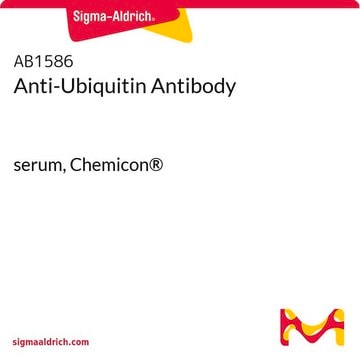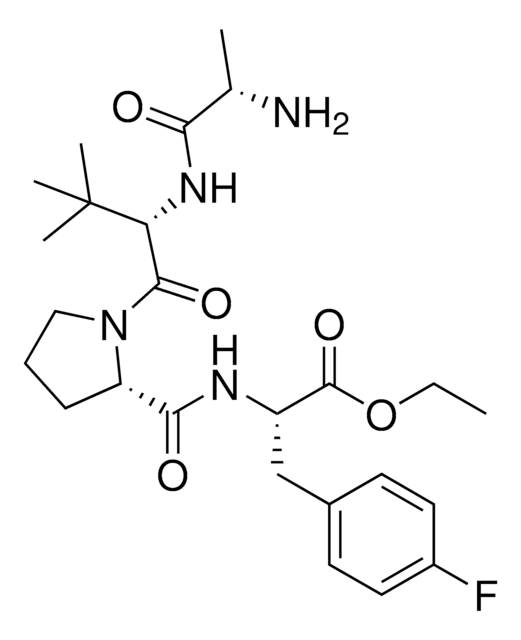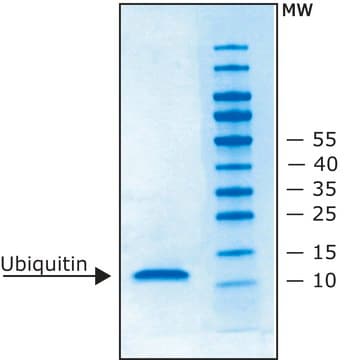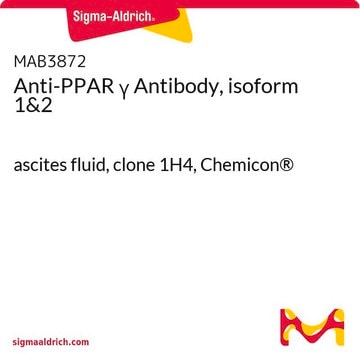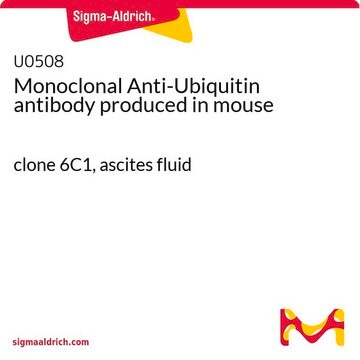AB1690
Anti-Ubiquitin Antibody
serum, Chemicon®
About This Item
Produits recommandés
Source biologique
rabbit
Niveau de qualité
Forme d'anticorps
serum
Type de produit anticorps
primary antibodies
Clone
polyclonal
Espèces réactives
bovine, eukaryotes, human
Fabricant/nom de marque
Chemicon®
Technique(s)
immunohistochemistry (formalin-fixed, paraffin-embedded sections): suitable
western blot: suitable
Numéro d'accès NCBI
Numéro d'accès UniProt
Conditions d'expédition
dry ice
Modification post-traductionnelle de la cible
unmodified
Informations sur le gène
human ... UBAP2(55833)
Spécificité
Immunogène
Application
Immunoblotting: 1:1,000-1:5,000.
Optimal working dilutions must be determined by end user.
Protein Trafficking
Ubiquitin & Ubiquitin Metabolism
Forme physique
Stockage et stabilité
Informations légales
Clause de non-responsabilité
Vous ne trouvez pas le bon produit ?
Essayez notre Outil de sélection de produits.
Code de la classe de stockage
10 - Combustible liquids
Classe de danger pour l'eau (WGK)
WGK 1
Certificats d'analyse (COA)
Recherchez un Certificats d'analyse (COA) en saisissant le numéro de lot du produit. Les numéros de lot figurent sur l'étiquette du produit après les mots "Lot" ou "Batch".
Déjà en possession de ce produit ?
Retrouvez la documentation relative aux produits que vous avez récemment achetés dans la Bibliothèque de documents.
Notre équipe de scientifiques dispose d'une expérience dans tous les secteurs de la recherche, notamment en sciences de la vie, science des matériaux, synthèse chimique, chromatographie, analyse et dans de nombreux autres domaines..
Contacter notre Service technique